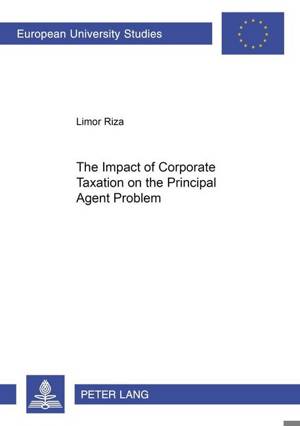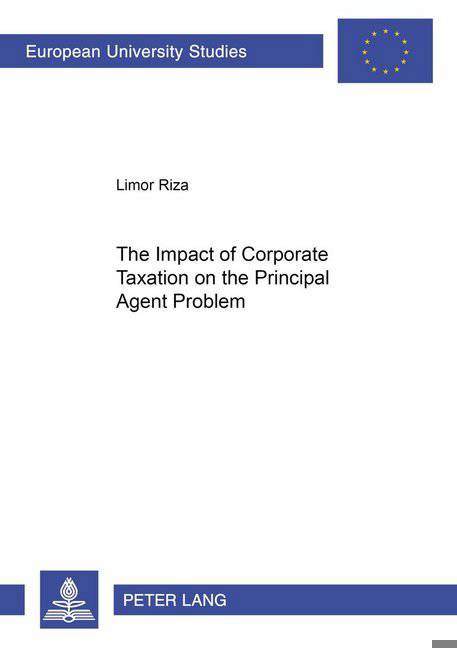
Door een staking bij bpost kan je online bestelling op dit moment iets langer onderweg zijn dan voorzien. Dringend iets nodig? Onze winkels ontvangen jou met open armen!
- Afhalen na 1 uur in een winkel met voorraad
- Gratis thuislevering in België vanaf € 30
- Ruim aanbod met 7 miljoen producten
Door een staking bij bpost kan je online bestelling op dit moment iets langer onderweg zijn dan voorzien. Dringend iets nodig? Onze winkels ontvangen jou met open armen!
- Afhalen na 1 uur in een winkel met voorraad
- Gratis thuislevering in België vanaf € 30
- Ruim aanbod met 7 miljoen producten
Zoeken
Omschrijving
The principal agent problem has been widely addressed in the literature, primarily as part of organizational law and financial theory. The literature has thus far ignored the role tax law plays in addressing principal agent problems. On occasion, it has referred to one section or another in the Internal Revenue Code that supports corporate law, but it has not yet concretely highlighted tax law's impact on agency problems, much less tax law as a mechanism to address these problems. This work is based on the proposition that we can use corporate tax law to mitigate the agency problem. It examines the agency problem through the eyes of tax law. Prima facie, a direct relationship between tax legislation and the principal agent problem may seem questionable, however, this work attempts to verify quite the opposite.
Specificaties
Betrokkenen
- Auteur(s):
- Uitgeverij:
Inhoud
- Aantal bladzijden:
- 236
- Taal:
- Engels
- Reeks:
- Reeksnummer:
- nr. 3758
Eigenschappen
- Productcode (EAN):
- 9783631514627
- Verschijningsdatum:
- 4/09/2003
- Uitvoering:
- Paperback
- Formaat:
- Trade paperback (VS)
- Afmetingen:
- 148 mm x 210 mm
- Gewicht:
- 309 g

Alleen bij Standaard Boekhandel
+ 123 punten op je klantenkaart van Standaard Boekhandel
Beoordelingen
We publiceren alleen reviews die voldoen aan de voorwaarden voor reviews. Bekijk onze voorwaarden voor reviews.











